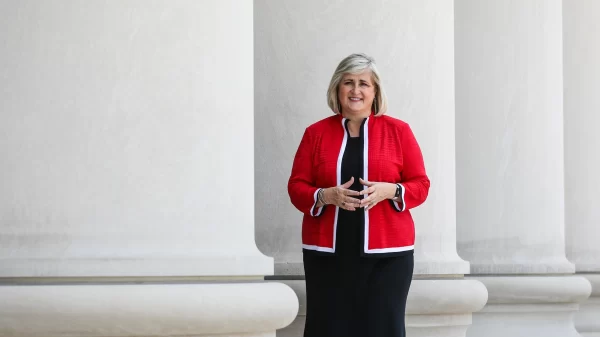|
Getting your Trinity Audio player ready...
|
The Alabama Reentry Commission heard from the Alabama Municipal Judges Association and Alabama Municipal Court Clerks and Magistrates Association about a new database that could compile all of an individual’s municipal court cases so that sentences can be served concurrently.
“There are 280 municipal courts in the state; you can do the quick math. That’s more than all the other courts combined. Further point I’d like to impress upon you is at the municipal court level we have more cases than all the other courts combined. I say this from that angle, we believe municipal courts are very important, some may say the most important if you’re looking at lives impacted,” said Vice President of the Alabama Municipal Judges Association K.C. Hairston.
One issue that municipal courts are seeing once inmates reenter life after serving time in jail is a series of cases in municipalities across the state. Dealing with additional cases and their associated fines incurred and possible jail time can negatively impact employment and the fresh start they hoped to see.
“About 1 of every 1,00 inmates that we deal with, I get a letter where they just hand-wrote it on the back of a napkin or something that’s usually just done in their cell, they say ‘Hey, I’m serving a 10-year sentence, can I run my traffic ticket concurrent with this 10- year sentence?’ You know what I do with this request? I grant every one of them,” said Hairston.
Hairston proposed a formalized process that would make this commonplace. Inmates could fill out a form that would then be sent to every municipal court to compile all sentences to be served concurrently. Certain exceptions for violent crime would not be eligible for this process.
A simplified way to do this would be compiling all data from municipal courts into one database to make the search process easier for these cases to make this process possible.
“What if you could take this new dataset and do a centralized process to handle the municipal court cases so that when these inmates get out, maybe 90, maybe 95 percent of their cases or all of their cases have been handled? So that the fresh start you’re wanting to give them is really a fresh start and not the first step toward multiple municipal cases,” said Hairston.
One of the issues that the Reentry Commission has discussed at length is the difficulty for inmates who have recently been released to obtain identification. Hairston noted that most of those hold-ups exist at the municipal level and serving these sentences concurrently could erase that obstacle at the end of a sentence.
“I think the packet they get when they step out is a resolution of all their municipal court cases and a brand new driver’s license. I’m not talking about one they can go in there and get, I’m saying it’s in the packet, a hard one. It’s a hardship license or a regular one. You don’t have any municipal court cases to go deal with, you have a license and the world is your oyster,” said Hairston.





















































